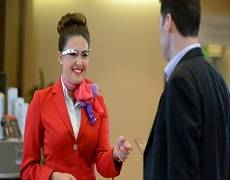March 20, 2014
European executives overconfident about their ability to manage change
 There are a number of casual truisms about the modern workplace that everybody accepts to the point they become clichéd. But knowing something and knowing what to do about it can be two completely different things. While we might all agree that ‘change is a constant’ and the ‘main driver of change is technology’, both ideas are subject to the interconnected and immutable law that whatever we do is likely to be wrong to a greater or lesser degree. According to new research from the Economist Intelligence Unit, one of the main reasons for this is that organisations and business leaders are not very good at judging how responsive they are to change, make the converse misjudgements about the readiness of their competitors. In the words of the survey, they tend to see themselves as speedboats while viewing their competitors as supertankers when the reality is often the other way around.
There are a number of casual truisms about the modern workplace that everybody accepts to the point they become clichéd. But knowing something and knowing what to do about it can be two completely different things. While we might all agree that ‘change is a constant’ and the ‘main driver of change is technology’, both ideas are subject to the interconnected and immutable law that whatever we do is likely to be wrong to a greater or lesser degree. According to new research from the Economist Intelligence Unit, one of the main reasons for this is that organisations and business leaders are not very good at judging how responsive they are to change, make the converse misjudgements about the readiness of their competitors. In the words of the survey, they tend to see themselves as speedboats while viewing their competitors as supertankers when the reality is often the other way around.

























March 25, 2014
The workplace should be designed for (and by) people, not robots
by Simon Heath • Comment, Facilities management, Technology, Workplace design
(more…)